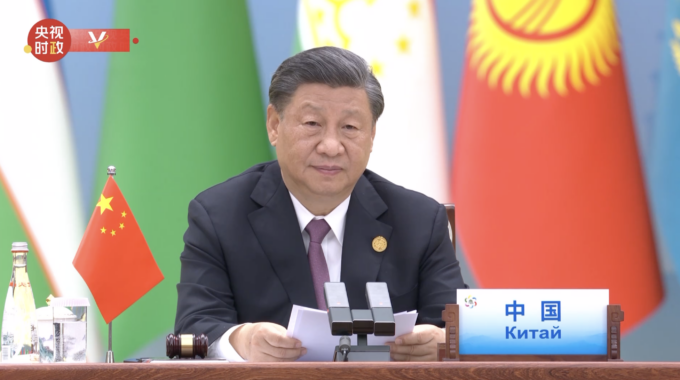Global Development Initiative a welcome intervention

Herald Correspondent
The Global Development Initiative (GDI) being championed by China has been widely received by the international community and achieved positive progress and considerable early harvests.
The GDI seeks to revitalise global development partnership, mobilising international development resources, deepening development cooperation and bridging the North-South gap, among other imperatives.
Its major outcomes include stronger, greener and healthier inclusive global development.
In June 2022, President Xi Jinping chaired the High-Level Dialogue on Global Development, charting the course for GDI implementation.
A year later, the Center for International Knowledge on Development (CIKD) has launched the Progress Report on the Global Development Initiative in Beijing.
The report is a measure of how GDI is a solution to world turbulences, economic slumps, constant calls for peace and a win-win cooperation has fared.
Africa and Zimbabwe are already experiencing benefits and prospects from the framework.
Zimbabwe has gotten food security enabled by agricultural technology.
“The Dakar Declaration of the 8th Ministerial Conference of the Forum on China-Africa Cooperation (FOCAC) among others welcome and endorse the GDI as providing new opportunities for the implementation of the 2030 Agenda,” the report reads.
Building cooperation platforms centring on the eight priority areas
According to the report, the GDI prioritizes cooperation in eight areas, namely poverty alleviation, food security, pandemic response and vaccines, financing for development, climate change and green 2 development, industrialisation, digital economy, and connectivity in the digital era.
In September 2021, the Global Development Initiative (GDI) was proposed at the General Debate of the 76th Session of the United Nations (UN) General Assembly, calling for international commitment to development as a priority, a people-centered approach, benefits for all, innovation-driven development, harmony between man and nature, and results-oriented actions.
The report notes that the GDI, a re-commitment to the 2030 Agenda, has over the past year devised practical cooperation on the Initiative’s eight priority areas covering all 17 SDGs.
This has been enabled by elevating poverty reduction and promoting a poverty-free.
These initiatives have mainly benefitted developing countries with the inclusion of Cambodia.
Secondly, China has worked with other countries and international development agencies to strengthen cooperation guaranteeing food security.
In December 2021, the Chinese government and the FAO signed the General Agreement on Phase III of the South-South Cooperation Trust Fund, donating US$50 million to the FAO and providing new resources to help address global hunger, malnutrition and other issues.
Zimbabwe falls under this initiative in projects that cover the Food Production Enhancement Action.
Falling under class 2020 MSc Fisheries Programme, the country is grouped with Mongolia, Syria, Ethiopia, Zimbabwe, Liberia, Rwanda, Sierra Leone, Sudan, Tanzania, Uganda, Zambia, and Venezuela.
Thirdly, China has cooperated with partners aiding in pandemic responses and vaccines.
The COVID-19 pandemic largely spurred the intervention leading to a promotion of international cooperation on vaccine supply and R&D to build a global shield for immunity.
“After the outbreak of COVID-19, China was among the first to pledge to make vaccines a global public good, to support vaccine R&D and waiving intellectual property rights, and to cooperate with developing countries in vaccine production,” the reports reads.
Fourthly, China has provided financial support as a basis for international development cooperation.
Developing countries, long confronted with insufficient resources for development have benefitted. For instance, the Global Development and South-South Cooperation Fund has supported the WFP’s food assistance programs in Burkina Faso, Laos and Togo, the UNDP’s post-COVID recovery assistance in Nepal and Pakistan.
Climate change and green development is another explored area.
“In recent years, natural disasters caused by extreme weather around the world have occurred more frequently, and biodiversity loss has been degrading at an accelerated pace, putting harmony between man and nature in jeopardy,” reads the report.
The Technology Transfer South-South Cooperation Center, established by the Administrative Center for China’s Agenda 21 and the UNDP, has carried out international cooperation projects on the transfer of renewable energy technology to countries including Ghana, Zambia, Sri Lanka and Ethiopia.
GDI has helped developing countries advance sustainable industrialisation.
The implementation the “Future of Africa — a project for China-Africa cooperation on vocational education,”in 2021 has largely helped Africa.
The World Technical and Vocational Education and Training (TVET) League and the International TVET Prize, both initiated by China, have been well-received.
The GDI not only aims to help developing countries grasp opportunities offered by the technological revolution but to promote global sharing of the dividends of the digital economy.
The Chinese government has made contributions to the International Telecommunication Union (ITU) to support joint activities for the development of information and communications technology (ICT) in developing countries, contributing to the ITU’s Connect 2030 Agenda and the SDGs.
Connectivity in the digital era is an important foundation for regional economic integration.
The China-Mongolia border highway port supervision reform project and China-South Africa functional customs supervision cooperation project are well underway.
Further opportunities
The GDI is an important public good China provides to the international community in the new era. Zimbabwe has vastly benefitted from the same initiative through a trade boost, enhanced people to people activity through education and culture and importantly infrastructure development.
Going forward, Zimbabwe could encourage more Chinese companies investments, thereby supporting its economy which is the bedrock of development.








Comments